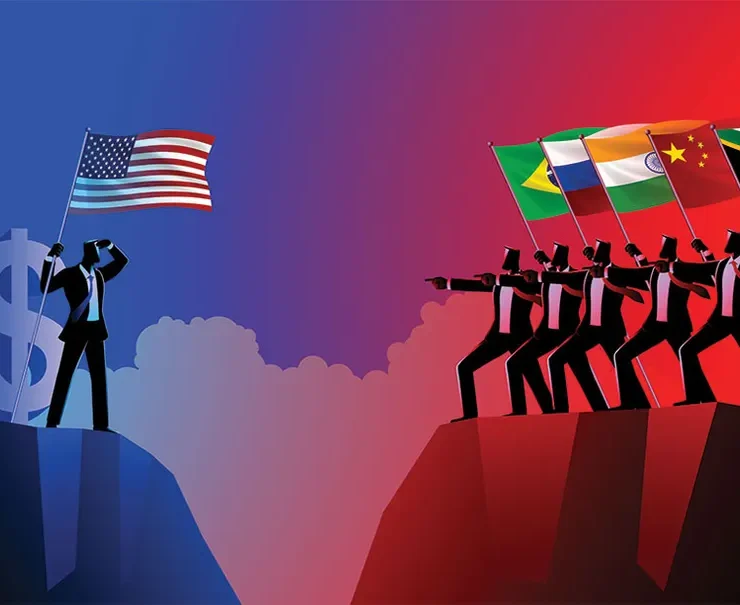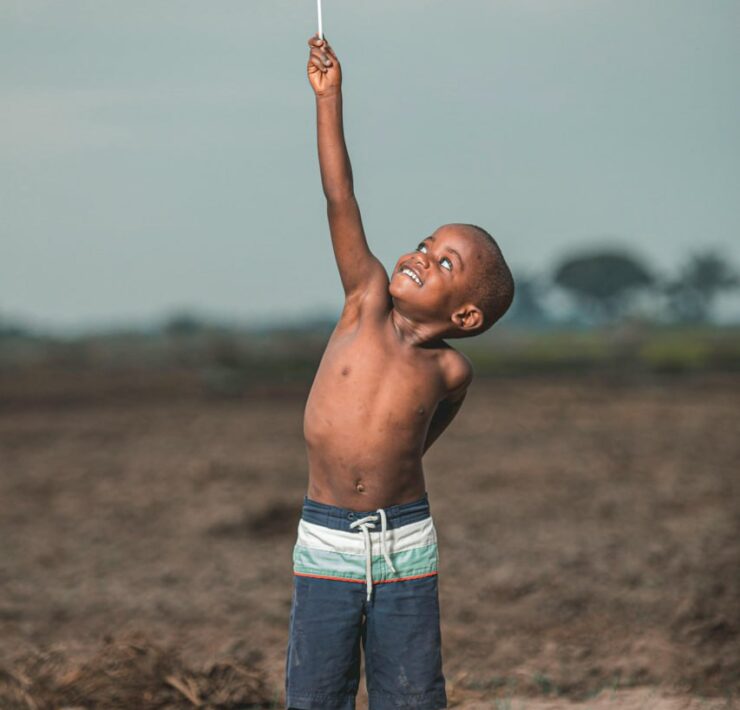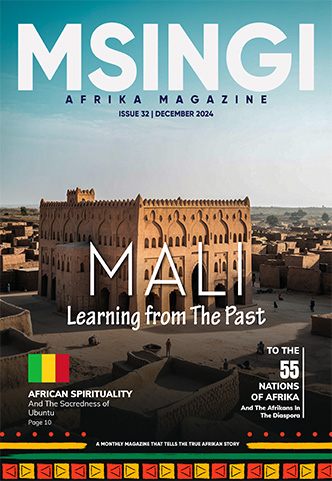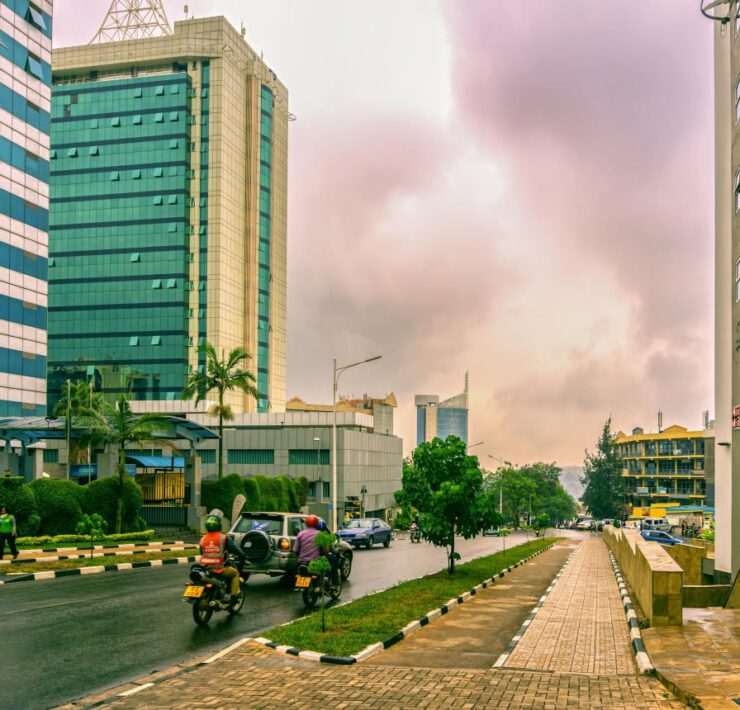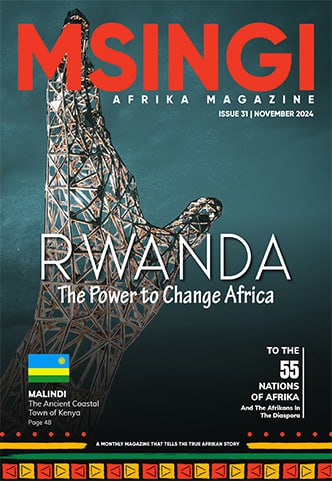
Chioma Phillips is the Editor of Msingi Afrika Magazine and…
“MPs reject Bill to promote local suppliers in tenders”, reads a headline in the Business Daily Africa from 17th August 2021. The article by John Mutua goes on to say that: “Parliament has shot down a proposed law that sought to compel foreign contractors to source all products and services locally if available, dealing a blow to Kenyan firms. The Committee on Finance and National Planning rejected the Bill, amid concerns that some of the locally made products are of low quality and will compromise standards of the infrastructure projects.
The proposal in the Public Procurement and Asset Disposal (Amendment) Bill 2020 aimed to boost the local manufacturers and spur job creation. The Bill sought to amend section 157(9) of the Public Procurement and Assets Disposal Act 2015 that require all foreign tenderers participating in international deals to source at least 40 per cent of their supplies from local contractors.
“Requirement for foreign tenderers participating in local tenders to source all their locally manufactured supplies from local contractors is not feasible,” the committee said in its report of the Bill.
Proponents of the Bill said that the amendments will protect local jobs and curb repatriation of profits by the foreign companies that are increasingly taking up construction works.”
In response, the Kenya Association of Manufacturers CEO, Phyllis Wakiaga said, “By rejecting the Bill, Parliament sends a clear message to local manufacturers, local creators and innovators that the country is not at all committed to nurturing their businesses. This move erodes the competitiveness of Made in Kenya products and gives full advantage to foreign products which already highly encroach the local market share. From the economic lessons of the pandemic, we need to prioritize being self-sufficient as a country, and yet policies such as these move contrary and push us further into being a trading nation.
The Association wishes to assure all Kenyan citizens of our local industries’ capacity to sustainably produce high quality products for the country and export markets. We urge Parliament to review their decision on the Bill for the sake of our Nation, our economic goals, our people and our collective future.”
A few months earlier, in the same newspaper, on 22nd February 2021, author Edwin Mutai broke the news that: “British products get 25-year free entry in Kenya pact” Going on to explain that “Kenya’s trade pact with UK will allow British firms to ship in goods duty-free for 25 years. The post-Brexit trade deal with the UK will, however, open the window for British companies to flood the local market with finished and unfinished goods that exclude agricultural and industrial products at the expiry of a seven-year moratorium.
The details of the trade agreement were revealed by the Ministry of Industrialisation, Trade and Enterprise Development as it asked Parliament to ratify the Economic Partnership Agreement (EPA) signed between Kenya and the United Kingdom of Great Britain and Northern Ireland (UK).” This deal was eventually ratified by legislators from both sides in the month of March. The agreement entails a gradual and partial reduction of tariffs on some UK exports to Kenya over 25 years from the commencement of the deal.
The Kenya Association of Manufacturers is supportive of this deal, as is the Kenya Private Sector Alliance, seeing benefit for Kenya in it and urging members to improve their manufacturing competitiveness during the 7-year moratorium.
Both pieces of news were equally exhausting to me, but also revelatory. It is always revelatory just how blind, stupid, selfish or heartless Afrikan governments can be when it comes to the welfare of their citizens and their economies. Lacking in vision, foresight, and gumption – except for the issues connected to their own bellies. Afrikan governments talk big about lifting their populations out of poverty, about industrialization, local manufacturing, about world class products – and then go and make decisions that leave their citizens stuck in neo-colonial prisons manned by the Afrikan political class.
When the trade deal initially came up, I was thinking, “Why can’t the government see? The UK is on the ropes and is grabbing about for deals to make as it grapples with the fallout from Brexit – what an opportune time for us to make a deal on our own terms, one that favors us!” Farmers in Kenya even sued to stop the deal from proceeding, but, like with the much-disputed IMF loan, we were rebuked as though we are mindless, sheltered little children who know nothing of the real world and how it works; and told, once again, that it was in our best interests.
When the news about the rejection of local sourcing of products came up, I was gob smacked. I felt like the neighborhood bully had struck again. This time he had snatched my favorite book out of my hands, ripped it to shreds, thrown the pieces into the mud, stomped and spat on them. Kenya’s parliament has been very effective and unrepentant at making decisions that are not favorable towards their constituents, and doing so with a straight face… but this seemed like the final slap in the face. It’s as if they had collectively said to the nation of Kenya, “You’re not good enough, period. Almost 60-years after independence, we refuse to support you and give you the opportunity to rise and industrialize. We choose, once again, to side with the oppressor and keep you, our foolish people, downtrodden.” The UK trade deal is in similar vein, to my mind.
How can we explain all this? It is as if these Afrikan lawmakers assume that everyone who is serious about manufacturing wakes up one day and is perfect at their craft. That America woke up perfect, the UK woke up perfect, China woke up perfect and took over the world with ‘world-class’ products. They forget that China was (and still is) a properly effective manufacturer of counterfeit goods and that they pretty much stole the ideas of companies that outsourced production to them and refined these until they were able to produce goods that were indeed ‘world-class’. They forget that much of America’s industrialization started in a kitchen, or a garage, or a living room, with imperfections that gradually led to products of sufficient quality to sell to their own citizens and export to the world. They forget that much of what made “Made in Great Britain” so special in the 1980s has died off, with many of their products being taken over by Indian manufacturers. They forget that all of these ‘world-class’ products still find themselves with issues, often leading to product recalls, injuries and even deaths of consumers, yet they continue to fall at their feet in idolatrous worship and praise – all the while being the effective tools of demonization of their own people. What kind of insanity is this?
In a year when Kenya and Afrikan countries launched the African Continental Free Trade Area (AfCFTA), these countries all seem more intent on continuing their focus on Europe, the US and China as trading partners, rather than each other. Leaving the concept of a strong Afrika firmly stuck in the realm of theory. In a 2019 interview with The African Report, President Kagame had this to say about regional integration efforts at the African Union, “We are still stuck in very old politics, if I may say, and we are stuck there even when we are aware that there are more and better things we can achieve together, but still, we take this route that’s old-fashioned or archaic. Because integration necessarily means give and take, it means giving away a certain level of countries’ sovereignty. At the same time, the old politics plays on sovereignty as if it’s the beginning and the end of everything. Trying to fight that way of doing things is what we are trying to do [in pushing] through reforms in the African Union. It’s not just one region, it’s the whole thinking about our continent. And when we are together in the room – 30-40 heads of state and the government, 50 sometimes – you know you tend to say: “Okay like we are here together in this room, why don’t we act together like we are here in this room?” And the benefits are obvious to all of us, but when we separate from the general assembly hall then we continue to be individuals again.
So, it’s something not one individual, one country can [do]. You can do your part in your country, like some countries are trying to do, but when it comes to that step where we have to do it with others, [we] fall very short.”
And on moving from national to regional interests, he added, “We have discussed with the Volkswagen leadership that we want to make this investment an East African thing. Let each one of our countries have something to supply to Volkswagen.
One country supplies tyres; another one pieces of the car. And in fact, for us, because Volkswagen are going to provide what they call mobility solutions and they are going towards even building driverless cars and so on – which will need high connectivity internet and stuff like that – and they preferred Rwanda because of the connectivity here, that could be our part we should concentrate on. And we said fine, we are happy to concentrate on this, bring in others to provide other parts of the car…”
On the push towards bringing Afrikan countries together, as juxtaposed against increasing nationalism in Europe and America, Kagame said, “Actually, it’s very ironic in a sense, and the level of cynicism as well. You see what Europe started doing and it went to the level where they thought – let me call it the West actually – they thought this system they have created is the best in the world, everybody should follow. So, everybody has been struggling to follow, especially Africa, to cope with the system, the dictates in the system by the West [who say]: “Africa, we measure the progress you are making against what we have created.” As we try to struggle to follow what has been created, now what has been put before us is sort of crumbling.
…we are in an era where there are these difficulties across the world, but they constitute the best opportunities for us, for Africa – the best we’ve ever had. This navigating [between the crumbling Western model and the Chinese model] is actually the best thing for us. Because you can try to get the best from whichever side you may choose and what you think may work best for you – you are not tied to one thing, whether it is good or bad. You are now having freedom. That navigation, it means freedom, freedom to navigate, making choices between so many things.”
It is when you hear the words of people like President Paul Kagame, you realize what you suspected all along; that your head of state or government and his cabinet and the members of parliament, senate and governors are all playing you. They are not unaware of the need to unite the continent, nor are they ignorant of its benefits. Equally, they are clear about the mode and the means through which to do so and are very conscious of the cost of the journey… they are just not doing it. They are not willing to do it. They are only willing to pursue what appear to be national interests on the surface, but when you look at their decisions, you realize that these are not national interests at all, but interests that appear to benefit a tiny handful of people in a very restricted food chain. And they pursue those interests with all strength. Not even the Members of Parliament who vote for or against the laws are the true beneficiaries. Funny, because if they used the same energy to pursue the possibility of a strong, united Afrika, that means that they could very well achieve that goal.
The only reason Kenya would end up with private sector associations and citizens that are ignored by their so-called representatives, or that are party to their country’s own exploitation, supporting legislation that takes the nation away from an Afrika-focused trajectory, and instead choosing to focus Kenya (yet again) on a very narrow dependency on exports to the neo-imperialist, neo-colonialist UK – once again on THEIR terms and for THEIR benefit… The only reason why this would be the case is because the ‘representatives’ have not done the necessary work to focus the efforts of the nation on building a strong and united Afrika. So, it’s not that they are blind. Maybe shortsighted about the long-term implications of their choices, but they do see what they are doing.
I may have shared this story before about how, one night, on the way to Jomo Kenyatta International Airport, I saw a truck that was heading in the same direction, filled with green beans of a size and quality my eyes had never seen in the local market. I was in a taxi and I asked the driver about it and he said, these are for export and that Kenya will never see this quality in their market. He went on to school me and to help me understand that it happens with every single commodity that we sell. Only the top-quality items are exported, the leftovers are for the people of the land to consume. It’s no joke. I attended a flower show in Nairobi once and saw roses. No, you don’t understand. You think your eyes have seen roses. These were gigantic long-stemmed roses in a variety of colors you had no hope of ever finding in the local market. Roses from white-owned flower farms. I was stunned. I saw some of them once again a few years later, in Cairo, adorning a ‘five-star’ hotel, imported from Kenya. Corona changed some of these narratives, to some extent, but you know even with flight restrictions for humans, food must find a way through… so Kenyans went back to consuming the usual cast-offs not long after restrictions were instituted.
One of the meanings of the word ‘stupid’, is: “Given to unintelligent decisions or acts, acting in an unintelligent or careless manner.” I think that many of our Afrikan leaders are adhering to these kinds of things a little too closely. Carelessly condemning their citizens to socio-economic prisons of their making, simply because they want to curry favor with their non-friends from America, Europe and China, they put all of us in a position where we simply cannot find room to grow, to breathe or to thrive. Then, as in the case of Kenya, they turn around and tell US that our products are of poor quality and therefore are not deemed fit to be purchased by foreigners for local use. Telling generations of young Kenyans that they and their parents are ineffective at manufacturing. So much so that their products fail to qualify for purchase even for use locally, because they are of ‘poor quality’. That’s so heartless. Not for once did they stop to question themselves, to find out what was wrong with their own local bureau of standards, or training institutions, or their own will to invest in their people. In addition to denying local manufacturers opportunity to have their products purchased by foreign tenderers, they then go ahead and open doors for foreign goods to get access to Kenyan markets at rates more favorable than local manufacturers are given. If that is not a kill shot to the head of local industry, then I don’t know what is. And the smoking gun is in the hands of our so-called leaders.
Based on Kagame’s own words, I am not naïve enough to think that the Kenyan story is an isolated incident. I’m sure others from different countries in Afrika will read this and recognize the economic sabotage they have encountered at the hands of their own governments. It’s a sad, familiar story that has broken hearts and businesses from the north, to the west, to the east to the south of our beautiful Afrika and a story that we have to fight to change between us. Because it is evident that governments are not going to do this for us. They think we are ineffective, yet they perpetuate the very uneven playing fields that cause us not to thrive.
But we can face one another and support one another, by seeking each other out to trade with, to manufacture for, to finance, to sell commodities to, to guide on standards and regulations governing how we do business with each other. We can do that for each other, legally, deliberately and committedly and in such a way that we actually shift the landscape of things in our own favor. It is time for Afrika to give what is best to and to do what is best for Afrika and the only way that happens is if you and I do it together. Recently, Kenya’s president negotiated for Kenyan nurses to be able to work in the UK. Kenyans jumped at the opportunity, excited to be able to go and work abroad. I’m sure the pay is better… but, what happens to the quality of Kenyan healthcare if her best nurses – and you can be sure that those interviewing will only pick the best – travel abroad to give their strength to the neo-colonialist forces at work? Are you tracking with me? If WE don’t stop and choose to do our best by each other, we will be swept away by things that look good, superficially, but the larger impact will GUARANTEE that Afrika remains chained like the unicorn in the British coat of arms, enslaved forever while constantly giving her strength and her wealth to a leech that is more shrewd and cunning than her former colonies are.
You see, even if they choose to be, WE cannot afford to be blind, stupid, selfish or heartless. The price we pay is too hefty.
Subscribe now for updates from Msingi Afrika Magazine!
Receive notifications about new issues, products and offers.
What's Your Reaction?
 PIN IT
PIN ITChioma Phillips is the Editor of Msingi Afrika Magazine and the host of Msingi Afrika Television. Her hope is to see the Truth shared, with all who will listen, for the transformation of the people and the continent of Afrika - and the world. She believes passionately in the critical role that Afrika and Afrikans have to play on earth right now and hopes to ignite the spark that will cause them to see and believe who they are, so that they can live out their Truest lives for the remainder of their days.
















